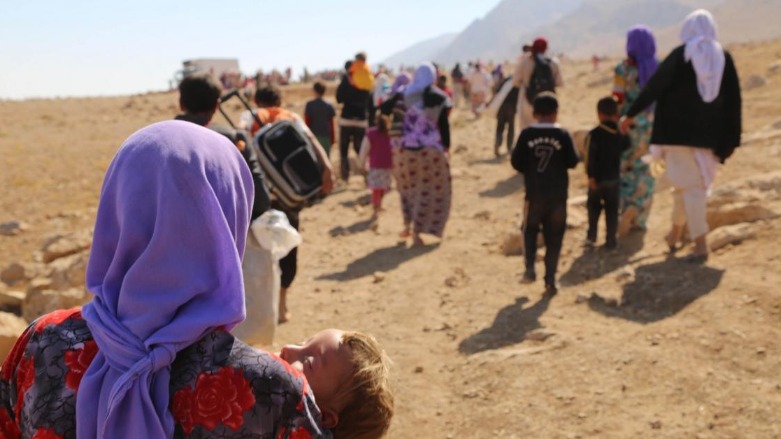Doctors Without Borders calls for improved mental health services in Iraq amid shortage in treating Yezidis

ERBIL (Kurdistan 24) – The lack of a developed mental health service in Iraq has left many members of the Yezidi (Ezidi) community without treatment for psychological disorders caused by the violence the ethnoreligious minority suffered at the hands of the so-called Islamic State, the international medical humanitarian organization Doctors Without Borders/Médecins Sans Frontières (MSF) said on Friday.
The emergence of the Islamic State in Iraq and its violent assault on Shingal in 2014 led to the displacement of hundreds of thousands of Ezidis. Most of them fled to the Kurdistan Region, while others resettled in neighboring countries in the region or Western states.
Others were not as lucky and remained stranded in the war zone, where they experienced atrocities and mass executions at the hands of the terror group for years. Militants subjected women and girls to sexual slavery, kidnapped children, forced religious conversions, executed scores of men, and abused, sold, and trafficked women and girls across areas they controlled in Iraq and Syria.
As noted in the MSF report, many Ezidis who still live in Shingal “experience a high level of mental health needs.” It added that between “April and August 2019, 24 patients arrived in the emergency room of Sinuni General Hospital following suicide attempts—six of whom died. Eleven of the patients were under 18 years old.”
“Our first mental health survey in 2018 in Sinuni revealed that 100 percent of the families we spoke with had at least one member who suffered either moderately or severely from mental illness,” the report quoted Dr. Marc Forget, MSF head of mission in Iraq, as saying.
“When we met with the medical director of the hospital in Sinjar, he told us that everyone needs mental health support in the district, including him. It matched what we realized at the beginning of our activities: that we were dealing with a major mental health crisis, and that it was linked to the collective trauma Yezidis endured recently.”
According to the report, close to 200 people living in Shingal are being treated by MSF for mental health complications, which includes “depression, anxiety, and conversion disorder (when a patient experiences blindness, paralysis, or other symptoms not explained by medical examinations).”
“Despite the urgency of the situation in Sinjar, we are unable to find qualified psychiatrists and psychologists in Iraq to work with us,” Forget said. “So, as MSF, we are forced to bring in international staff for support, which is not ideal, and also not sustainable in the long term.”
“The Iraqi mental health system definitely needs more money and more medication, but the biggest need is for more qualified staff, and for them to be assigned to areas of greater need, especially in rural and conflict-affected areas of this country.”
Editing by Karzan Sulaivany
